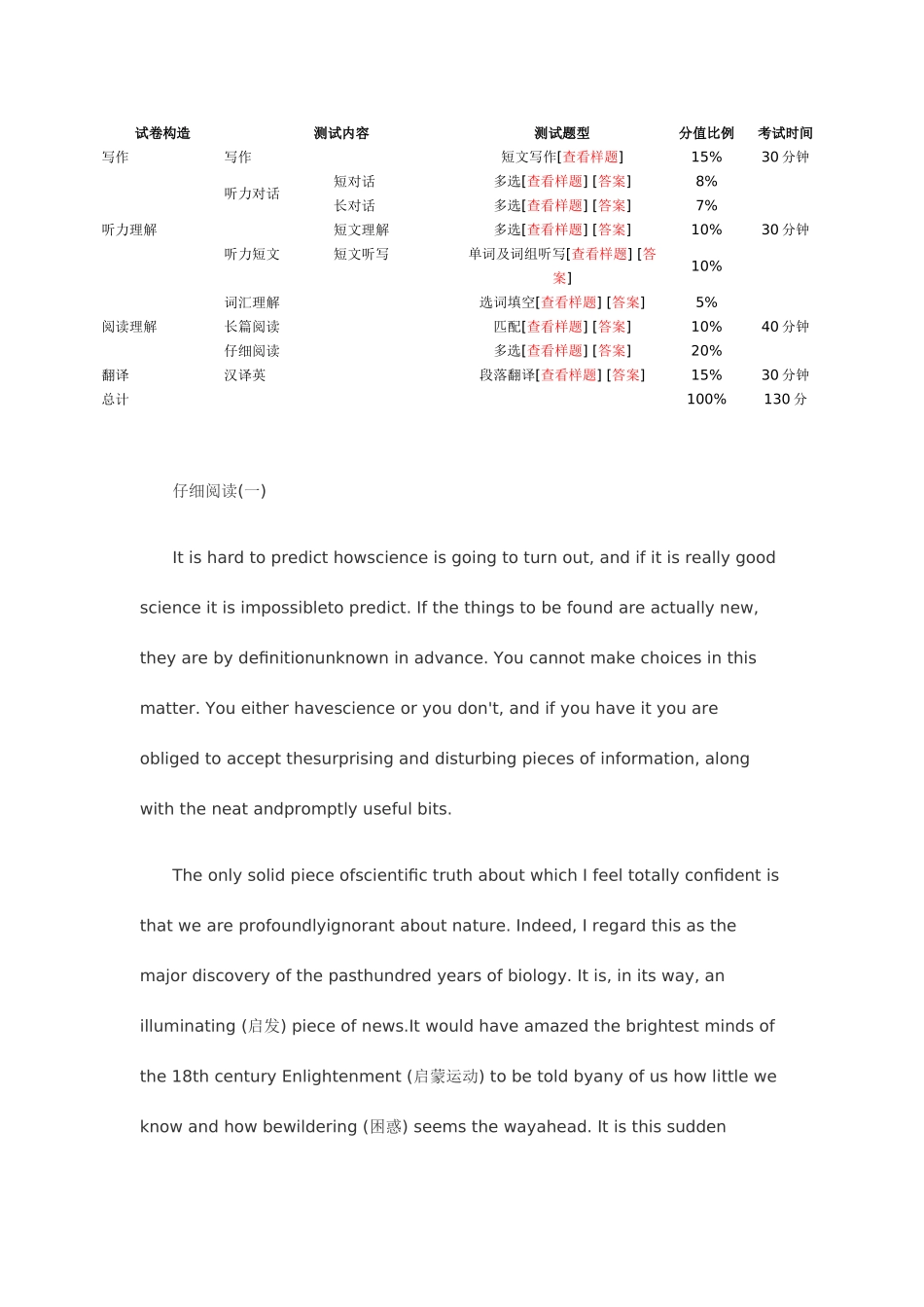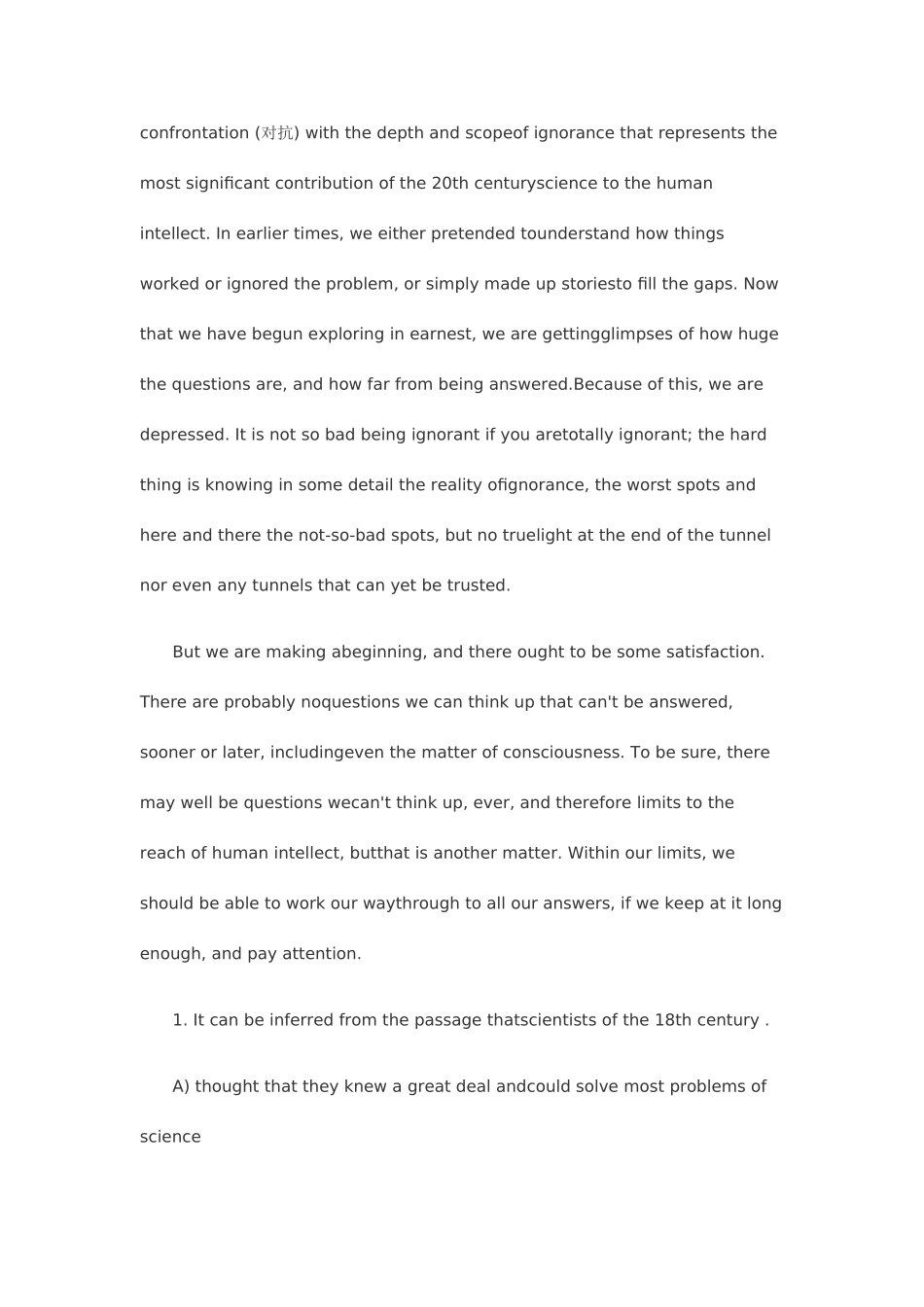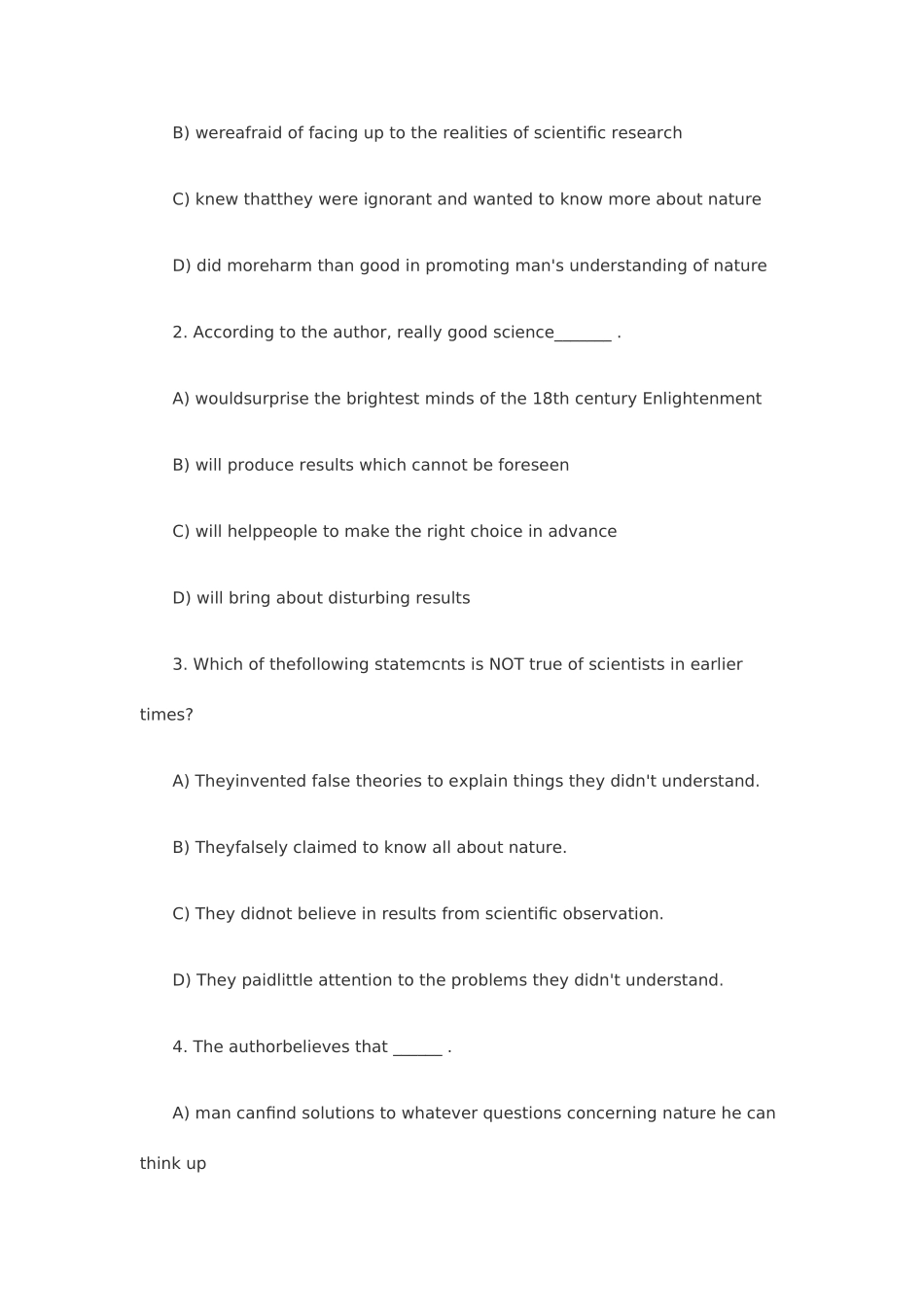试卷构造测试内容测试题型分值比例考试时间写作写作短文写作[查看样题]15%30 分钟听力理解听力对话短对话多选[查看样题] [答案]8%30 分钟长对话多选[查看样题] [答案]7%听力短文短文理解多选[查看样题] [答案]10%短文听写单词及词组听写[查看样题] [答案]10%阅读理解词汇理解选词填空[查看样题] [答案]5%40 分钟长篇阅读匹配[查看样题] [答案]10%仔细阅读多选[查看样题] [答案]20%翻译汉译英段落翻译[查看样题] [答案]15%30 分钟总计100%130 分仔细阅读(一)It is hard to predict howscience is going to turn out, and if it is really good science it is impossibleto predict. If the things to be found are actually new, they are by definitionunknown in advance. You cannot make choices in this matter. You either havescience or you don't, and if you have it you are obliged to accept thesurprising and disturbing pieces of information, along with the neat andpromptly useful bits. The only solid piece ofscientific truth about which I feel totally confident is that we are profoundlyignorant about nature. Indeed, I regard this as the major discovery of the pasthundred years of biology. It is, in its way, an illuminating (启发) piece of news.It would have amazed the brightest minds of the 18th century Enlightenment (启蒙运动) to be told byany of us how little we know and how bewildering (困惑) seems the wayahead. It is this sudden confrontation (对抗) with the depth and scopeof ignorance that represents the most significant contribution of the 20th centuryscience to the human intellect. In earlier times, we either pretended tounderstand how things worked or ignored the problem, or simply made up storiesto fill the gaps. Now that we have begun exploring in earnest, we are gettingglimpses of how huge the questions are, and how far from being answered.Because of this, we are depressed. ...


